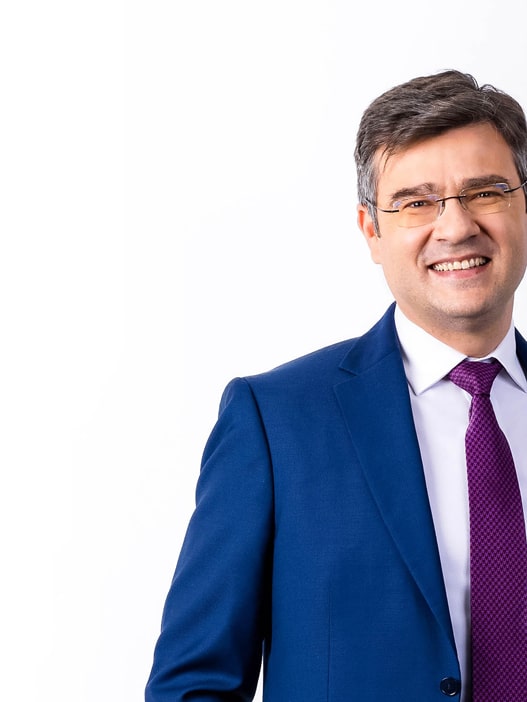Newest EU sanctions against Russia target military capabilities, propaganda tools and more
Discussions also underway on even enactment of criminal offences for sanctions violations
In addition to other areas, the EU’s 9th sanctions package adopted on 16 December 2022 aims at impacting the Russian military industry in order to weaken the offensive force and military capabilities of its invasion in Ukraine.
This alert follows our team’s previous practical recommendations for businesses concerning previous sanction packages against Russia. For background information, please see our previous regional and local alerts.
On 16 December 2022, the EU adopted its ninth package of restrictive measures against Russia, namely the Council Regulation 2022/2474, Council Regulation 2022/2475 and Council Regulation 2022/2476. Among the new sanctions imposed, one of the most important discussed is the restriction and the ban of trading concerning key chemicals, nerve agents, night-vision and radio-navigation equipment, electronics and IT components. Among new listed companies affected by the latest sanctions package (168 new entities have been added), there are also some Russian-controlled entities based in the illegally annexed regions of Crimea and Sevastopol.
Media outlets and instruments of misinformation targeted
Additionally, four additional media outlets perceived as propaganda tools used to destabilise the EU — NTV/NTV Mir, Rossiya 1, REN TV and Pervyi Kanal — will have their broadcasting licenses suspended given that Russia has engaged in a systematic and international campaign of media manipulation and distortion of facts in order to enhance its strategy of destabilisation of its neighbouring countries and of the EU and its Member States, and the fact that Russian propaganda has repeatedly and consistently targeted European political parties, as well as civil society, asylum seekers, Russian ethnic minorities, gender minorities and the functioning of democratic institutions in the EU and its Member States. Moreover, restrictions on the provision of market research and public opinion polling services, technical testing and analysis services and advertising services have been added to the restrictions as well.
New banks added and prohibitions related to mining and quarrying
According to Council Regulation 2022/2476, an asset freeze was decided against two additional Russian banks: Credit Bank of Moscow (which is Russia’s largest non-state public bank and its sixth-largest financial institution) and Dalnevostochniy Bank (which is one of the largest bank in the far east of Russia and an important financial institution for the Government of the Russia Federation). Also, a full transaction ban was decided regarding the Russian Regional Development Bank.
Concerning the additional economic measures taken, according to Council Regulation 2022/2474, the following in the mining or quarrying sector are also prohibited, to: (a) acquire any new or extend any existing participation in any legal person, entity or body incorporated or constituted under the law of Russia or any other third country and operating in the mining and quarrying sector in Russia; (b) grant or be part of any arrangement to grant any new loan or credit or otherwise provide financing, including equity capital, to any legal person, entity or body incorporated or constituted under the law of Russia or any other third country and operating in the mining and quarrying sector in Russia, or for the documented purpose of financing such a legal person, entity or body; (c) create any new joint venture with any legal person, entity or body incorporated or constituted under the law of Russia or any other third country and operating in the mining and quarrying sector in Russia.
Additional restrictions impacting aviation and space industry
Also, Council Regulation 2022/2474 expands the export ban covering goods and technology suited for use in aviation and the space industry to include aircraft engines and their parts. This prohibition, together with the prohibition to land, take off from, or overfly the territory of the EU, applies to both manned and unmanned aircrafts. Some derogations have been introduced allowing the provision of technical assistance related to the use of goods and technology suited for use in aviation or the space industry, when this is necessary to avoid collision between satellites, or their unintended re-entry into the atmosphere. At the same time, the changes also introduced the possibility for the national competent authorities to grant derogations to allow for certain aviation goods, which are also widely used in the medical field, to be exported for medical, pharmaceutical and humanitarian purposes.
This latest, ninth package of sanctions the EU seeks to weaken both economic resources of Russia and also its capabilities to continue funding the war in Ukraine.
Current discussions focus on criminal offences and penalties for violations
At the same time, in order to ensure that the sanctions are evenly respected, the EU also has started discussions in regard to aligning the criminal offences and penalties for the violation of sanctions restrictions. The Commission proposed Directive sets out common EU rules, aimed at making it easier to investigate, prosecute and punish violations of restrictive measures in all Member States alike. Thus, the proposed EU Directive will try to establish the same level of penalties in all Member States and will try to close existing legal loopholes and increase the deterrent effect of violating EU sanctions in the first place.
Download the Article in English


